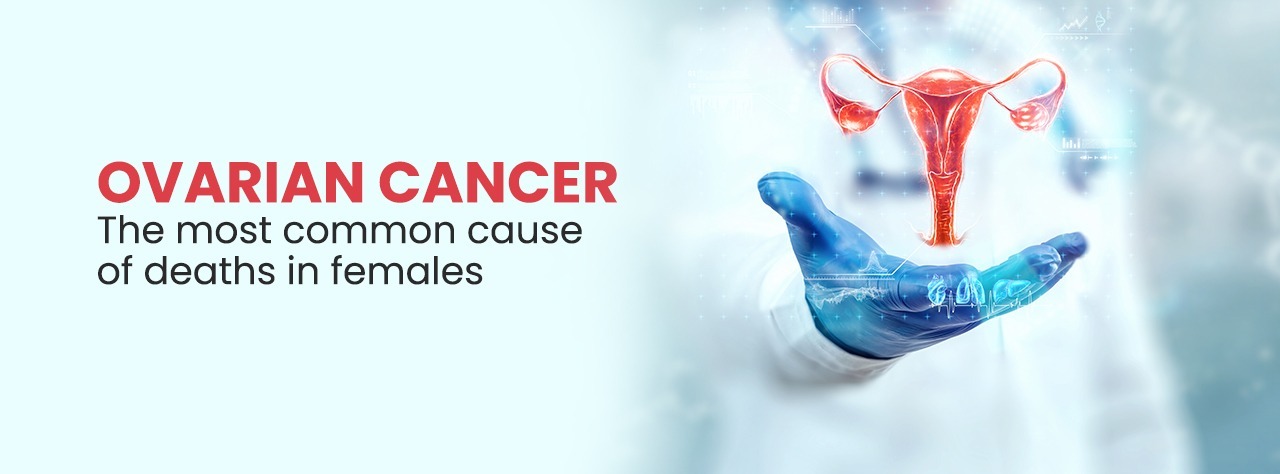Ovarian Cancer is the most common cause of death amongst all female pelvic cancers. Its’ incidence is increasing in past few years. Ovarian cancer is associated with a high death rate as it is asymptomatic in the early stages and is often diagnosed in an advanced stage. There are no specific symptoms associated with it. Most of the women present with vague abdominal pain, bloating, occasional nausea, and vomiting. By the time they reach the doctor, it is usually in an advanced stage.
There is no specific cause of ovarian cancer. Obesity, advanced age, and the use of tobacco are a few risk factors that increase ovarian cancer risk. Genetic factors also play a key role in 10-15% of cases. The lifetime risk of acquiring ovarian cancer is 1.3% in the general population and 10-60% in women who have a family history of breast/ ovarian/ endometrial/ pancreas or colon cancer. Those females whose first or second-degree relatives have either of the above cancers fall into high-risk groups-these are labelled as Familial ovarian cancer syndromes. Hence, these females need to be screened and tested regularly, to detect cancer in the early stages. Moreover, tests like BRCA1, BRCA2, and multi-gene profiles are available which can predict the genetic risk of cancer. On detection of high-risk genes, risk-reducing surgeries can be done or medicines can be taken which can minimize this risk.
A 45-year-old lady presented to us with a large abdominal mass and breathlessness. On investigations, she was detected to have ovarian cancer, stage III. On taking history it was revealed that her mother had died of uterine cancer and her one cousin suffered from breast cancer. The patient was treated for ovarian cancer and her genetic test showed her to be BRCA-1 positive. Her family including her children were counselled regarding their genetic testing and were advised annual screening.
Another 30-year-old asymptomatic lady came to us with diagnosed case of ovarian mass on ultrasound. Her grandmother had died due to ovarian cancer and she used to have annual ultrasounds of the abdomen for regular check-ups. During such routine testing, she was detected to have ovarian mass. She was operated on and was found to have early ovarian cancer. She is on regular follow up and is doing fine for the last 4 years.
The incidence of familial ovarian cancers is increasing worldwide due to increased lifespan. Families with a history of multiple cancers should have genetic counselling and females can go for BRCA-1/ BRCA-2 genetic testing. Secondly, simple tests like annual ultrasound, and mammography can be used for screening. Females who have completed their families are advised to undergo prophylactic removal of ovaries and tubes so that ovarian cancer can be prevented.
Ovarian cancer cannot be prevented easily. But early detection can prevent mortality and morbidity. Awareness and prompt treatment can prevent many deaths.
– Dr. Shruti Bhatia
Sr. Consultant, Gynae Oncology

